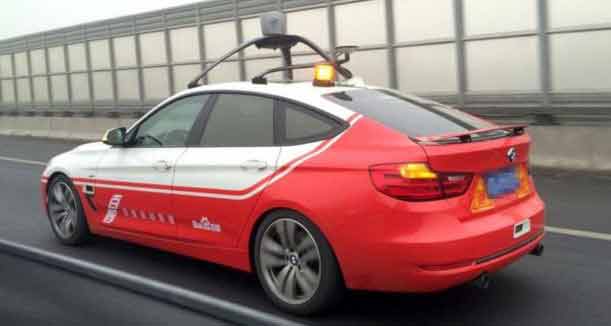
Are driverless cars speeding us toward an employment wasteland?
A BBC article today headed ‘China’s push for driverless cars accelerates’, reports that the race for driverless car technology is hotting up around the world, and that “Chinese companies are taking big strides competing with the likes of Google and Tesla”.
I sometimes wonder if all the geniuses behind this push for driverless cars have ever paused for a moment to consider that most people actually ENJOY driving their cars. So they are spending £Trillions developing a product most people will never want to buy.
But behind this insanity there is a more serious point, that of how technology is changing the world in which we live, work and play.
Those who look on the impact technology will have on our lives ten, twenty, or a hundred years from now, generally fall into two camps. The optimists, who consider most technological advances to be positive, bringing us things like iphones, micro-surgery techniques, and driverless cars. Then there are the pessimists who in bygone days would probably have been called Luddites, who think a high-tech world isn’t all gravy.
Since like most people nowadays I’d hardly be able to function if they suddenly took away the internet, or my iphone, or 46″ plasma TV, I should be firmly in the optimist camp. But there’s a little hypocritical pessimist lurking inside me, who sometimes worries about where this is all going.
Every age has had its Luddites. As far back as the Bronze Age there were probably people bemoaning how new-fangled inventions like the wheel would put them out of jobs. But the agrarian and industrial revolutions in the last three-hundred years have undeniably transformed the countries we know today, from populations that mostly lived in scattered, rural communities, working in agriculture and cottage industries, to a modern world almost entirely centred in large towns and cities. Whether you think that is a good or a bad thing is a matter of opinion.
But the advent of the motor car, then the computer, have arguably changed our world more significantly than any other technological development. And in the looming spectre of the driverless car, which combines the two, we are facing perhaps the perfect high-tech storm on the horizon.
Let no one be in any doubt, when driverless cars become a reality, they will overnight put millions of cab drivers, van drivers, lorry drivers, ambulance and fire engine drivers out of work, as profit-driven companies replace people with cheaper, more ‘efficient’ robots and computers. Train drivers and airline pilots might do well to think about a plan B too.
If this trend continues, a hundred years from now, a ‘driver’ will be something kids are taught about in their school history lessons, or they look up on Wikipedia, or whatever the higher-tech equivalent of Wikipedia will be called then. The same will go for ‘car worker’, ‘agricultural worker’, ‘office worker’ or ‘shop assistant’. They will all have been replaced by cheaper, more efficient robots and computers.
A few minutes shopping on Amazon, or walking around any farm, factory or supermarket check-out will reveal we’re already half way there.
A recent report by the World Economic Forum predicted that 5 million jobs would be lost by 2020 alone.
And yet, as this trend continues, and the world’s population increases by about 25 million EACH YEAR, does anyone not see a teeny bit of a problem up ahead with that math?
Here’s a scary graph, showing how the world’s population has increased over the last 1,700 years.

In fact the world’s population has DOUBLED from 3 billion around 1960 alone, to 7.5 billion today, and is currently increasing at around 25 million a year, while job losses are accelerating in the opposite direction.
And all those displaced millions will do WHAT exactly with their lives, when there are no more jobs to do? And earn a living HOW exactly when there are no more meaningful employment opportunities, or careers that give shape and purpose to their lives? And don’t tell me you’ll all be lazing happily around in some utopian leisure world playing non-stop computer games and other fun stuff like that, because somebody will have to pay for those expensive toys, and if you haven’t got a job, it won’t be you.
Perhaps the geniuses who are rushing us headlong into this ‘technological revolution’ might pause and reflect on the employment wasteland they are building for our grand-children, and great grand-children. Where perhaps only 1% of the world’s population have all the jobs, and presumably all the money.
It doesn’t take a great leap of imagination to realise that that is a world which cannot end well.
